Saturday Feb 21, 2026
Saturday Feb 21, 2026
Tuesday, 16 October 2018 00:05 - - {{hitsCtrl.values.hits}}

From Left: H.D. Chandrasena, Jayasiri Samaratunga, Ranee Ratnayake, Hiran de Alwis, Sujeeve Samaraweera and Gamini Gunasekara.
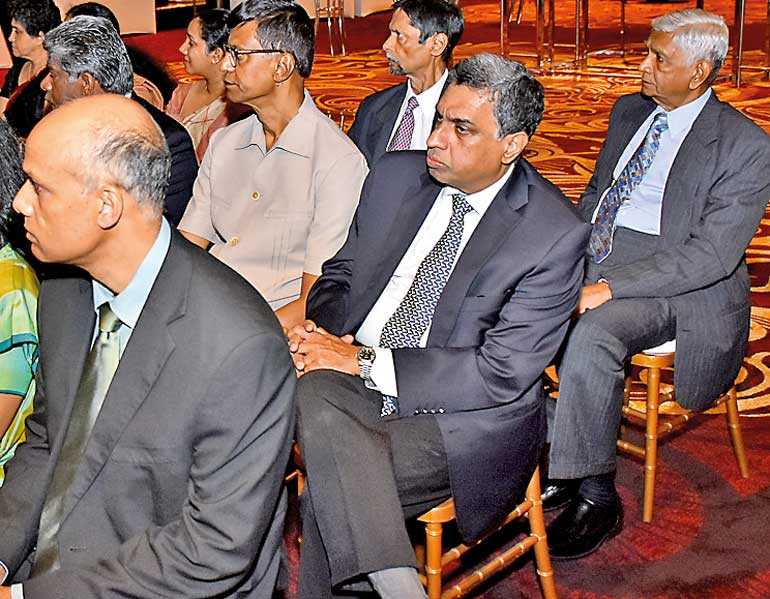
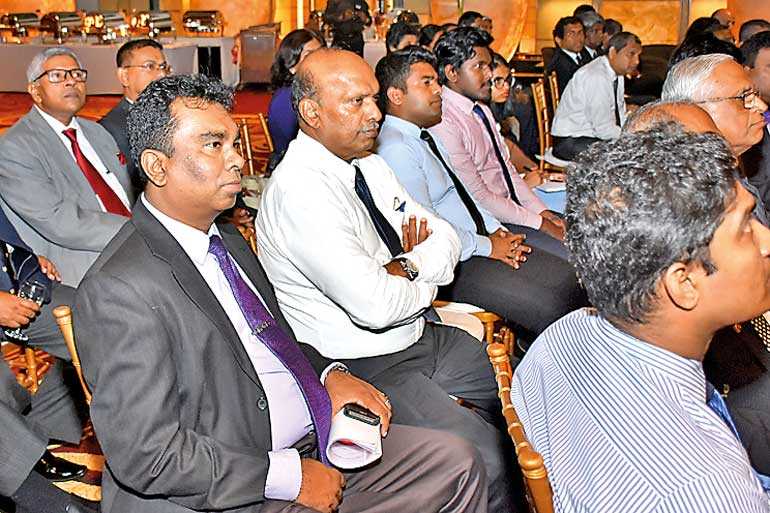
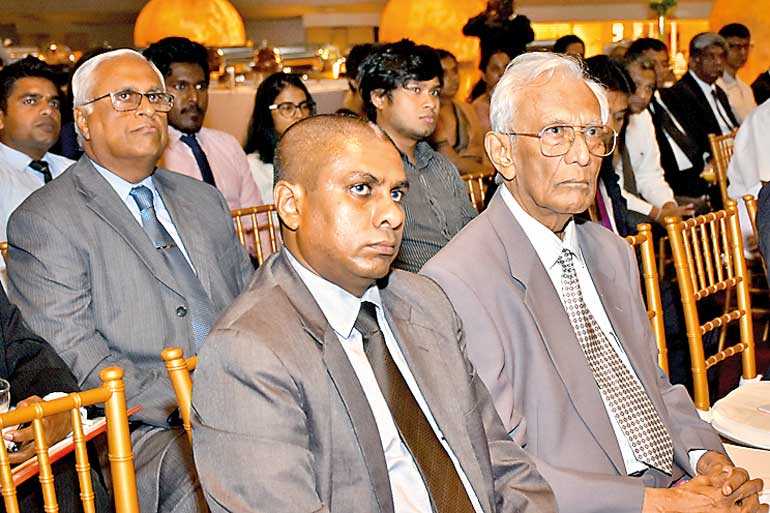
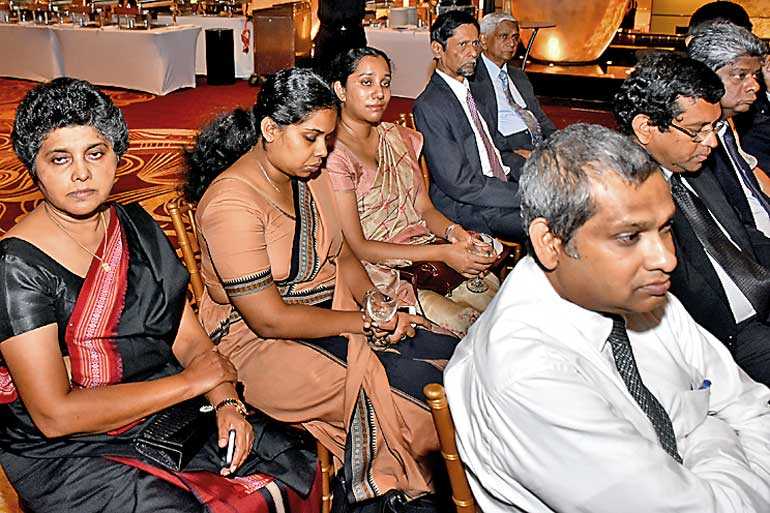
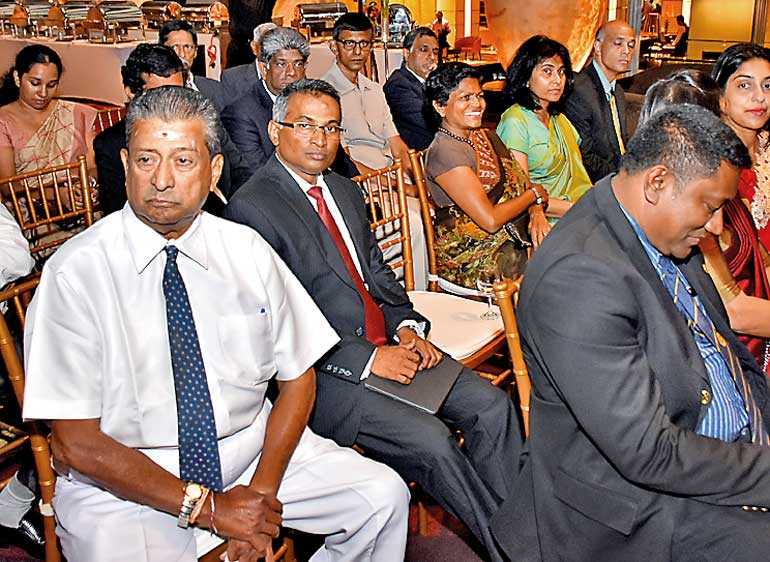
By Divya Thotawatte
Arbitration, if suitably upgraded and improved, could be a potential sector for Sri Lanka’s economy since the demand for arbitration rises every day, said an official recently.
Speaking at the Annual General Meeting of the Sri Lanka National Arbitration Centre (SLNAC) last week, National Chamber of Commerce President and SLNAC Board of Governors Member Sujeeve Samaraweera said: “In the world today, arbitration is taken needful and the interests of arbitration rise day by day. Arbitration could be a very smart export if it is really produced. We are a neutral country, we can actually reap the benefits of our strategic location. But, we need to develop our talents; we need to compete with countries such as Malaysia and Singapore.”
Samaraweera said that in Sri Lanka, the interest in arbitration is rising rapidly, especially in logistics, shipping and construction, due to the confidential nature and flexibility of the sector. He said that it was necessary to invest in recordkeeping while improving confidentiality in arbitration.
“We need privacy in a business. We don’t want the whole world to know about our problems, about the disputes, because we need venues to markets. Somebody can win and somebody can lose, but we have to face competition. Therefore, confidentiality is the most important when it comes to arbitration,” he elaborated.
Attorney-at-law, SLNAC Chief Legal Advisor and Board of Governors Member Hiran de Alwis said that there are unutilised opportunities in the SAARC Region for business, and that the National Arbitration Centre was working towards improving the efficiency of the arbitration process in order to attract businesses in Sri Lanka and within the SAARC Region to use arbitration to resolve disputes.
“Going forward, we would like to use this platform to take arbitration to the next level, and our statistics reveal that 70-80% of our cases are concluded within two years, which is good. But we have to look at the remaining 20% very critically, that is one of the reasons I got involved – it’s to make sure arbitrations which are stuck for no apparent reasons are given impetus to finish soon, so we perform a service to the clientele. One of the innovative suggestions was to make a procedural order if possible, giving a timeline to the conclusion of arbitration.”
De Alwis stated that commercial establishments, State bodies and especially foreign investors in Sri Lanka have started to use the arbitration centre because they have confidence in the integrity of the centre. He said the policy decision taken by SLNAC to recommend UNCITRAL arbitration rules had led to this success.
SLNAC is the oldest institution in the country in the administration for arbitrations for the resolution of commercial disputes, having been established and incorporated in the year 1985. The arbitration centre’s role includes efforts to attract arbitrations to Sri Lanka as a service provider and to expedite commercial dispute resolution by arbitration, in a cost-effective manner under due process of law.
Pix by Indraratna Balasuriya